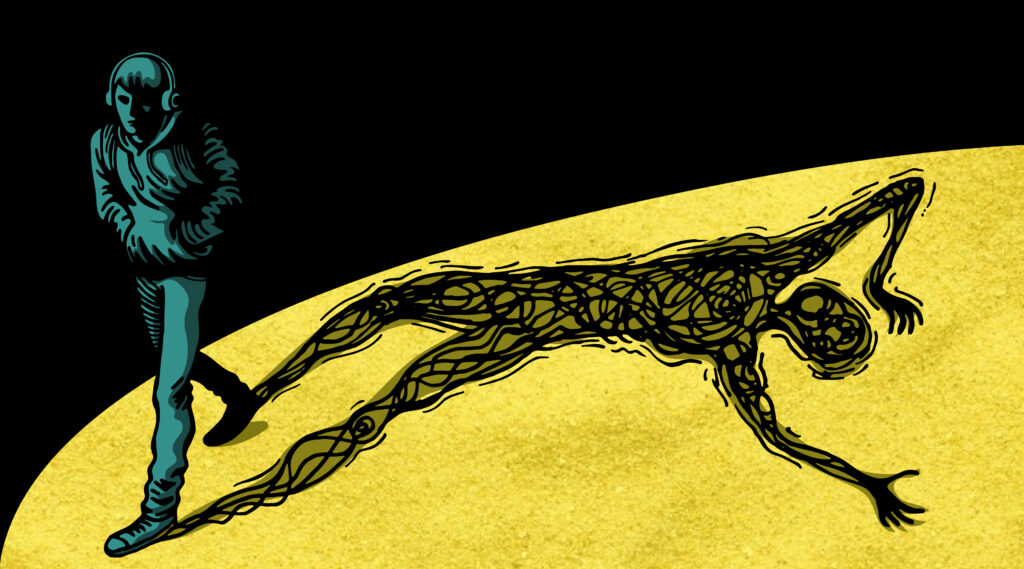Psychosis is a mental health condition that affects how a person thinks, feels, and behaves. It can cause hallucinations (seeing or hearing things that aren’t there) and delusions (believing things that are not true). Psychosis can be a very frightening experience for the person who is experiencing it and for those around them.
Contents
What Is Psychosis?
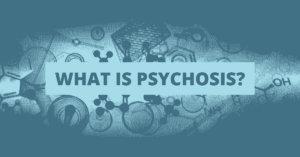
Psychosis is a mental disorder that affects your thoughts, feelings, and behavior. It can cause you to see or hear things that don’t exist or to believe things that aren’t true. People with psychosis may also feel like they are being watched or followed, or that someone is trying to harm them. It can be very frightening and upsetting for the person experiencing it and for their loved ones.
What Is Early Psychosis?
Early psychosis is a term used to describe the first episode of psychotic symptoms. Psychotic symptoms are changes in how you think, feel, and behave that is caused by a mental health condition. Symptoms can include hallucinations, delusions, or feeling like someone is watching or following you. Early psychosis usually starts between ages 15 and 25.
Early Warning Signs of Psychosis
There are some early warning signs of psychosis that can indicate that someone is starting to experience psychotic symptoms. It’s important to know what these signs are so that you can get help if needed. The early warning signs of psychosis can be different for everyone. However, there are some common symptoms that may indicate that someone is experiencing their first episode of psychosis. These include-
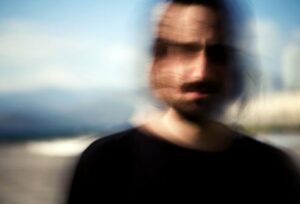
- Changes in mood, behavior, or thinking
- Withdrawing from friends and activities
- Becoming more reclusive
- Changes in sleeping habits
- Changes in eating habits
- Increased anxiety or paranoia
- Feeling like someone is trying to harm you
- Having strange thoughts or beliefs that other people don’t share
- Hearing, seeing, or feeling things that aren’t there
- Feeling very anxious or agitated
- Feeling confused and disorganized
- Withdrawing from friends and activities you usually enjoy
- Experiencing changes in your mood, such as feeling depressed or angry all the time
If you are experiencing any of these signs, it’s important to see a doctor right away. There is no one cause of psychosis.
First Episode Of Psychosis
The first episode of psychosis is a term used to describe the time when someone experiences their first psychotic symptoms. Psychotic symptoms are changes in how you think, feel, and behave that is caused by a mental health condition. Symptoms can include hallucinations, delusions, or feeling like someone is watching or following you. The first episode of psychosis usually starts between ages 15 and 25.
Signs Of First Episode Of Psychosis
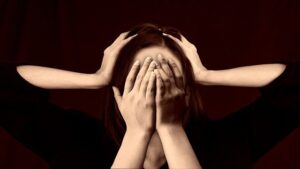
The signs of the first episode of psychosis can also be different for everyone. However, there are some common symptoms that may indicate that someone is experiencing their first episode of psychosis. These symptoms can include:
- Hallucinations: Seeing, hearing, or feeling things that are not there.
- Delusions: False beliefs that are strongly held even though evidence proves them wrong. For example, believing that someone is out to get you or that you have special powers.
- Thought disorders: Having unusual or disturbing thoughts, such as thinking someone is out to get you or that you have special powers.
- Mood changes: Feeling very sad, anxious, or angry for no reason, feeling like life isn’t worth living, or having problems with sleeping, eating, and functioning well in daily life.
If someone is experiencing any of these symptoms, it is important to see a doctor right away. psychosis can be treated with medication and therapy, and early treatment is often the best way to achieve the best possible outcome.
Signs Of Psychosis In Children

There are some signs that a child may be experiencing psychosis. This is a condition where a person’s thoughts, feelings, and behavior change in a way that is caused by a mental health condition. Some common symptoms of psychosis in children include-
- Seeing, hearing, or feeling things that are not there
- Believing things that are not true
- Having unusual or disturbing thoughts
- Feeling very sad, anxious, or angry for no reason
- Feeling like life isn’t worth living
- Having problems with sleeping, eating, and functioning well in daily life
If your child is experiencing any of these symptoms, it is important to see a doctor right away. There is no one cause of psychosis. But it can be treated with medication and therapy.
Causes Of Psychosis
There is no one cause of psychosis. Rather, it is thought to be caused by a combination of genetic and environmental factors. Some possible causes of psychosis include-
- Biological factors: Problems with the brain structure or function may contribute to psychosis.
- Environmental factors: Traumatic events, stress, or drug abuse may increase your risk of developing psychosis.
- Psychodynamic theories: These theories suggest that psychological conflicts or problems in early childhood may lead to the later development of psychotic symptoms.
- Genetics: Some research suggests that genes may play a role in the development of psychosis.
Risk Factors
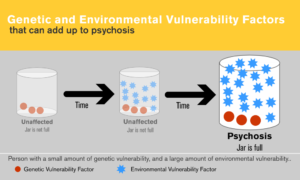
Psychosis is a serious mental illness that can distort your thoughts, emotions, and perceptions. It can cause you to see or hear things that aren’t there, believe crazy ideas, and act in ways that are out of character.
Psychosis usually starts in young adulthood. But it can also start in childhood or later in life. Early psychosis is the term used for the first episode of psychosis.
But it can be caused by a number of factors, including:
- Stressful life events
- Substance abuse
- Trauma
- Medical conditions, such as a brain tumor or stroke
- Psychiatric disorders, such as bipolar disorder or schizophrenia
Diagnosis
The diagnosis of psychosis is based on your symptoms and how they are impacting your life. There is no one test that can diagnose it. Treatment for psychosis usually includes medication and therapy. The goal of treatment is to help you manage your symptoms and live a healthy, productive life. Psychosis can be a serious illness, but with the right care, it can be managed successfully.
If you are experiencing symptoms of psychosis, your doctor will likely do a physical exam and ask about your medical history. They will also ask about your symptoms and when they started. To diagnose psychosis, your doctor will use the Diagnostic and Statistical Manual of Mental Disorders (DSM-V). This is a guidebook that mental health professionals use to diagnose mental health conditions.
Treatment Of Psychosis

psychosis can be treated with medication and therapy, and early treatment is often the best way to achieve the best possible outcome. There are also many different types of medications that help to treat psychosis, including antipsychotics, antidepressants, and anticonvulsants. Your doctor will work with you to find the best medication for you. Therapy may also be helpful in treating psychosis. There are many different types of therapy that can be effective, including cognitive-behavioral therapy (CBT), family-focused therapy, and psychodynamic therapy.
Medication And Psychosis
It is important to take your medication as prescribed by your doctor. If you stop taking your medication, the symptoms of psychosis may return. It is also important to tell your doctor if you are feeling sick or have any side effects from your medication.
- Antipsychotic medications: These medications help to control the symptoms of psychosis.
- Anti-anxiety medications: These medications may be helpful to help control symptoms of anxiety that can occur alongside psychosis.
- Anti-depressants: If someone has depression along with their psychosis, they may take antidepressant medication.
- Hospitalization: In some cases, hospitalization is necessary for treatment and monitoring of psychotic symptoms.
Types Of Therapy For Psychosis
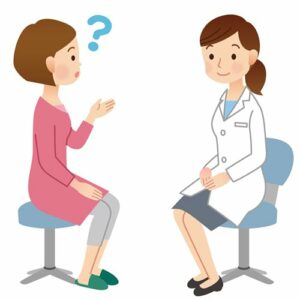 There are many different types of therapy that can be effective in treatment. The type of therapy that is best for you will depend on your individual needs and preferences. Some common types of therapy include:
There are many different types of therapy that can be effective in treatment. The type of therapy that is best for you will depend on your individual needs and preferences. Some common types of therapy include:
CBT: CBT is a type of therapy that helps you to understand how your thoughts and beliefs impact your emotions and behaviors. CBT can also help you to change the negative thought patterns that may be contributing to your psychosis.
Family-focused Therapy: This type of therapy focuses on improving communication and problem-solving skills within the family. This also helps to reduce stress and conflict within the family, which can help to improve the symptoms of this disease.
Psychodynamic Therapy: Psychodynamic therapy is a type of therapy that explores your past and how it may be impacting your present. This type of therapy can also be helpful in treating it.
Psychosis And Schizophrenia
Psychosis is a condition where a person’s thoughts, feelings, and behavior change in a way that is caused by a mental health condition. Schizophrenia is a type of psychosis. Psychotic symptoms are changes in how you think, feel, and behave that is caused by a mental health condition. Symptoms can include hallucinations, delusions, or feeling like someone is watching or following you.
Similarities & differences
Psychosis and schizophrenia share some similarities, such as-
- Both conditions can cause changes in how you think, feel, and behave
- Both conditions can cause hallucinations, delusions, or feeling like someone is watching or following you
However, there are also some differences between psychosis and schizophrenia. For example-
- Psychosis can be caused by other mental health conditions, while schizophrenia is its own distinct mental health condition
- Psychosis can be a symptom of schizophrenia, but it can also occur in other mental health conditions
- Schizophrenia always involves psychosis, but not all cases of psychosis are caused by schizophrenia
When To See A Doctor?
If you or someone you know is experiencing symptoms of psychosis, it is important to see a doctor right away.
- Hallucinations
- Delusions
- Thought disorders
- Mood changes
- Increased anxiety or paranoia
- Feeling like someone is trying to harm you
- Feeling like life isn’t worth living
- Having problems with sleeping, eating, or functioning well in daily life.
If you are experiencing any of these symptoms, it is important to see a doctor right away. Psychosis treatment is possible with medication and therapy, and early treatment is often the best way to achieve the best possible outcome.
Conclusion
The earlier you can detect and treat psychosis, the better the outcome. If you or someone you know is experiencing any of the early warning signs, please seek help from a doctor as soon as possible. It can be a very serious condition, but it is treatable. With the right care and support, people can lead healthy, happy lives. Thank you for reading this blog post. I hope it has been helpful.
A Word From Therapy Mantra
Your mental health — Your psychological, emotional, and social well-being — has an impact on every aspect of your life. Positive mental health essentially allows you to effectively deal with life’s everyday challenges.
At TherapyMantra, we have a team of therapists who provide affordable online therapy to assist you with issues such as depression, anxiety, stress, workplace Issues, addiction, relationship, OCD, LGBTQ, and PTSD. You can book a free therapy or download our free Android or iOS app.
